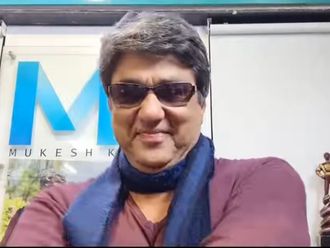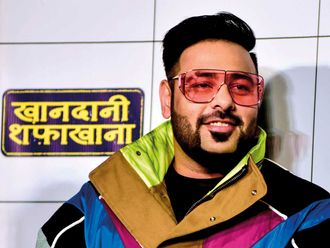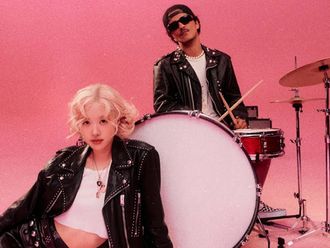
Dubai: Where do you draw the line with comedy? This is precisely the burning question that is plaguing Indian comedian Kapil Sharma this week.
The comedy show host has come under fire for a remark made during a recent episode of The Great Indian Kapil Show, which many viewers interpreted as a racially insensitive jibe towards filmmaker Atlee.
Kapil, however, has denied the allegations, urging everyone to watch the entire episode before forming conclusions. He claims his words were misinterpreted and that at no point did he make any sarcastic dig at Atlee's dark complexion. He also urged his critics not to spread hate on social media.
The controversy
The incident occurred in the latest episode of the Netflix series, which featured Atlee alongside Baby John actors Varun Dhawan, Keerthy Suresh, and Wamiqa Gabbi. During their conversation to drum up publicity for their action film, Kapil asked Atlee jovially:
“When you get to meet a star for the first time, do they ask, where is Atlee?”
Surprisingy, Atlee did not lose his composure as he addressed the underlying tone of the question.
“In a way, I understood your question. I’ll try to answer. I’m actually very thankful to AR Murugadoss sir because he produced my first film. He asked for a script, but he didn’t see how I was looking or whether I’m capable of it or not. But, he loved my narration. I think the world should see that. We should not judge by appearance. You have to judge by your heart.”
Many viewers praised Atlee for his thoughtful response while calling out Kapil for perpetuating stereotypes in the name of humor.
Kapil’s Response
As backlash grew on social media, Kapil Sharma on December 17 took to X (formerly Twitter) to defend himself. Responding to a tweet accusing him of subtly mocking Atlee’s appearance, Kapil wrote:
“Dear sir, can you pls explain me where n when I talked about looks in this video? pls don’t spread hate on social media 🙏 thank you. (guys watch n decide by yourself, don’t follow anybody’s tweet like a sheep).”
The comedian, who has often faced criticism for his style of humor, urged viewers to consider the context of the exchange rather than reacting to isolated snippets.
Recurring problem: Racism in Indian comedy?
Kapil’s show is not the first instance where insensitive humor has been called out. Racist, sexist, and body-shaming jokes often find a place in Indian comedy under the guise of lighthearted entertainment.
Indian shows, including stand-up comedy and TV sitcoms, frequently make jokes about skin tone, reinforcing problematic notions of fair skin as desirable. Imitating South Indian, North Eastern, or foreign accents for laughs has also been a recurring trope. Similarly, comments on weight, appearance, or physical features for a quick laugh is also another frequent occurence.
In Kapil Vs Atlee case, many critics, including singer Chinmayi Sripaada, addressed this recurring pattern. She tweeted: “Will they never stop these crass and racist jibes at his skin colour in the name of ‘comedy’? Someone with the amount of influence and clout like Kapil Sharma saying something like this is disappointing and unfortunately, not surprising.”
Public Reaction
Social media has remained divided. Some defended Kapil, claiming his question was harmless, while others highlighted the larger issue of insensitive humor being normalized. One user wrote:
“Kapil Sharma may be a nice person otherwise, but he makes racist/sexist/body-shaming jokes all the time on his show. This reflects the obsession with fair skin in our society.”
Another added: “His intention might not have been wrong, but comedians should be careful with their words. Jokes should be funny, not offensive.”
The Bigger Picture
Kapil Sharma’s comment, whether intentional or not, reignites a crucial conversation about the line between comedy and insensitivity. In a country where skin color and regional stereotypes continue to affect people deeply, comedians and entertainers are increasingly being called upon to use their platforms responsibly.











